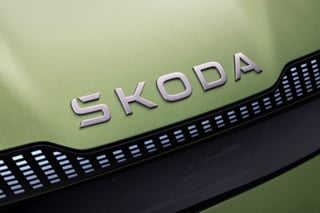By Jay Nagley
The logic behind General Motors’ range extender concept seemed impeccable. Large battery packs are expensive (certainly more than £6,000 to make one for a Leaf). Petrol engines, after more than 100 years of practice, are cheap (not more than £1,000 for a relatively simple one).
 |
||
Jay Nagley was a market analyst at Porsche Cars GB before spending the past 13 years as the head of Redspy Automotive, his own analysis and forecasting consultancy. |
||
Hence, combining a small battery pack with a simple petrol engine should be cheaper to make than a battery-only vehicle, while offering the buyer unlimited range. The only problem was integrating the two, which is not easy. However, GM bit the bullet – “Maximum Bob” Lutz, GM’s larger-than-life product supremo, said it was the most technically challenging thing the company had done.
Having been through the pain barrier, GM should be reaping the rewards. But there are few to be seen. Sales of the Vauxhall Ampera and Chevrolet Volt started slowly and have since ground to a virtual halt – while the Nissan Leaf is selling in decent numbers, albeit at a rather lower rate than the initial forecasts.
The Leaf outsells the GM twins by more than 5:1 (see table). The key issue seems to be the technology that should cost less, actually costs more. The Ampera is a bit like the Space Shuttle: in principle, re-using a space-craft should be more efficient, but it soon became clear that for the price of a Space Shuttle trip, you could throw away a rocket each time and rebuild.
Bewildering complexity – even to GM
A clue to the bewildering complexity of the Ampera came at its launch, when GM said the car would never be driven solely by its engine – it simply charged the batteries. Shortly afterwards, it had to clarify that the engine drives the wheels directly at motorway speeds because that is more efficient than mediating drive through a battery.
GM had no intention to mislead – the drivetrain is so complex it is difficult to know what it is doing at all times.
 One of the laws of engineering is that complexity costs money – as Colin Chapman of Lotus said, “An engineer is a person that can do for 50p what any fool can do for £1.”
One of the laws of engineering is that complexity costs money – as Colin Chapman of Lotus said, “An engineer is a person that can do for 50p what any fool can do for £1.”
The point of a Leaf is at least easy to grasp: “It can do 70 miles on battery power and then needs recharging.” That will interest a small proportion of buyers, but everyone gets the idea. By comparison, the range extender concept is a bit fuzzy: “It runs on batteries until it needs fuel and then the engine cuts in.” From a cynical point of view, a potential buyer may say: “So it is like a Toyota Prius, but it goes a bit further on its batteries in exchange for an extra £7,000.”
Another way of looking at it is that it’s like a Vauxhall Astra diesel that needs no fuel for the first 30 miles. Hence, for each trip of more than 30 miles it saves just over half a gallon of fuel compared with the most efficient diesel Astra – let’s say the equivalent of £3.50. For that privilege, the owner pays an extra £9,000 over an Astra 1.7 CDTi Energy. That requires quite a lot of short commutes and shopping trips to become worthwhile.
Non-premium brand, but at a premium price
It has been a very long time since buyers were prepared to pay £30,000 for a Vauxhall saloon – there is a reason the Omega executive car was never replaced. Unfair though it may be, people with that sort of money want something a bit more prestigious on their driveway. That is one of the reasons people are watching the progress of BMW’s i3 so carefully. Does the BMW badge overcome one of the issues with electric cars – that buyers have so far been charged premium prices for non-premium brands?
The GM range-extenders are brilliant pieces of engineering. However, the big question is whether their price premium can be slashed. At launch, the list price premium was £13,000 over a similar Astra. After the recent price cut, it is down to £10,000. How much will people pay to get their first 30 miles of driving for free? What if the value to the consumer is only a few thousand pounds?
If you add back the government grant of £5,000, GM was effectively saying at launch that the Ampera cost twice as much to make as an Astra, given that its pre-grant price was £38,000. Can GM really get the extra cost down from £18,000 to, say, £5,000? Given the number of physical parts required to make a range-extender, that seems like a big ask, especially when the battery pack is still a chunky 16Kw/hr unit thought to cost GM £5,000 at current prices.
GM once invested a fortune in developing rotary engines, until it concluded the numbers (especially fuel economy) just did not add up. Will range extenders go the same way – a brilliant piece of theory that just can’t find a niche between conventional hybrids, plug-in hybrids and battery electric vehicles?

















Login to comment
Comments
No comments have been made yet.